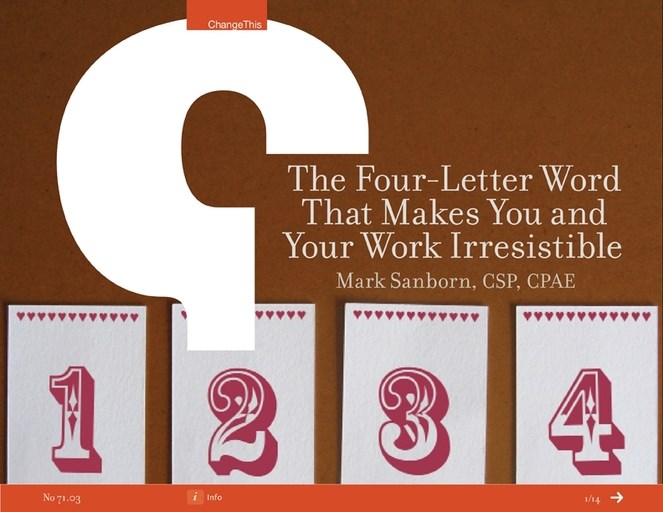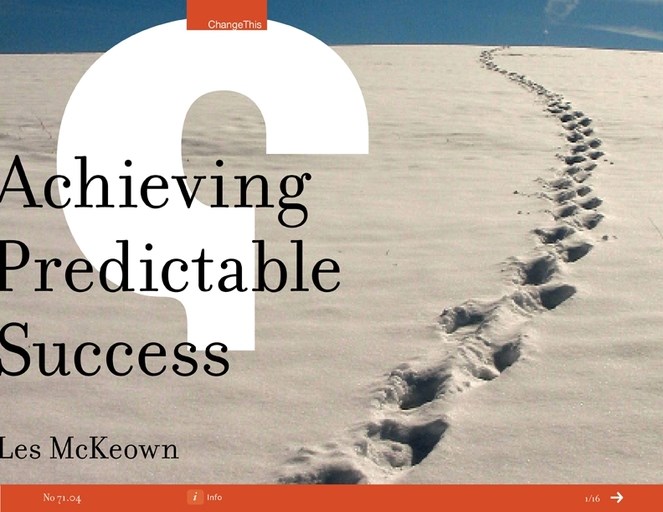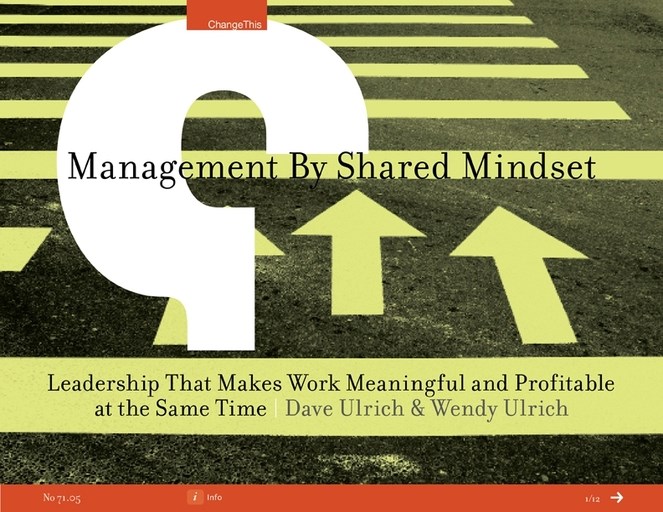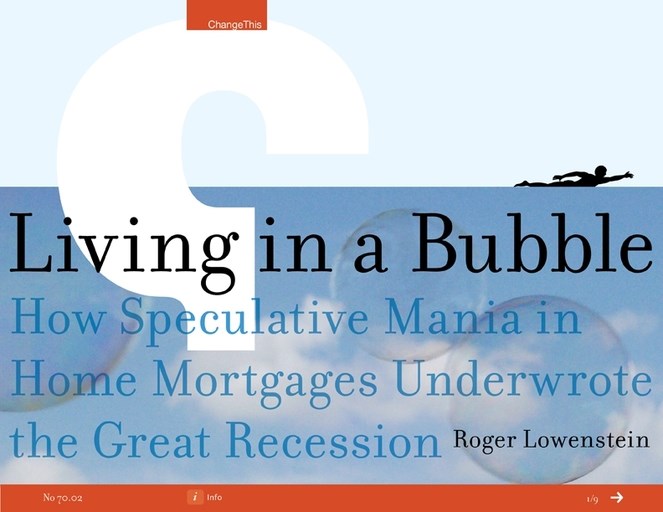ChangeThis RSS
"Some years ago I wrote a book about an extraordinary individual who loves his work. My editor at the time deleted the word love every place I used it. Instead, he suggested using the phrase 'generosity of spirit.'
'Why not love?' I inquired.
'Because the word love freaks out businesspeople,' he responded."
Continue reading
"As a serial entrepreneur who has personally launched over 40 businesses, and as a consultant and coach to hundreds of business leaders, I've come to realize that the 'growth code' is out there, in plain view for anyone who knows where to look. There is indeed a code, a pattern, a DNA if you
will, to achieving predictable success. The difficulty is that because most business leaders work in a limited number of business environments during their career, they don't have the opportunity to see the pattern recur often enough to successfully decode it."
Continue reading
"In the last few years, leaders have been encouraged to be bold, confident, authentic and grounded so that they can make decisions that help get things done. In the economic recession, these leaders responded quickly and decisively. We admire leaders who lead. But, we suggest that coming out of the recession, leaders need to shift their approach to lead by becoming meaning makers."
Continue reading
"It is an unquestioned truth of modern life: we are all starved for time. With the rise of 2-income families, extreme jobs, and the ability to log on to the world around the clock, we can barely find time to breathe.
At least that's the way the story goes. Yet there are some people who don't seem to feel this way. Not only do they have full personal and professional lives, they often claim they could fit more in if they wished!
How do these people do so much with their time? How do they do so much and not even feel stressed about it?"
Continue reading
"The bubble began at the dawn of the 21st century, and fed off the elixir of ultra-low interest rates. Low rates had been orchestrated by the Fed chairman, Alan Greenspan, with the steadfast support of his then-fellow Fed governor, Ben Bernanke. With credit cheap, Americans flocked to refinance their homes and to bid up the prices of new ones. This much was predictable. But the mortgage boom of the early 2000s was unlike others. A wave of unorthodox lenders sought to lure customers whose credit was judged to be less than prime—that is, subprime. These eager lenders were hailed as suburban Johnny Appleseeds, planting a mortgage in every backyard. Instead of a mere boom, they incited a social upheaval, much as did the dot.com promoters a decade earlier."
Continue reading










